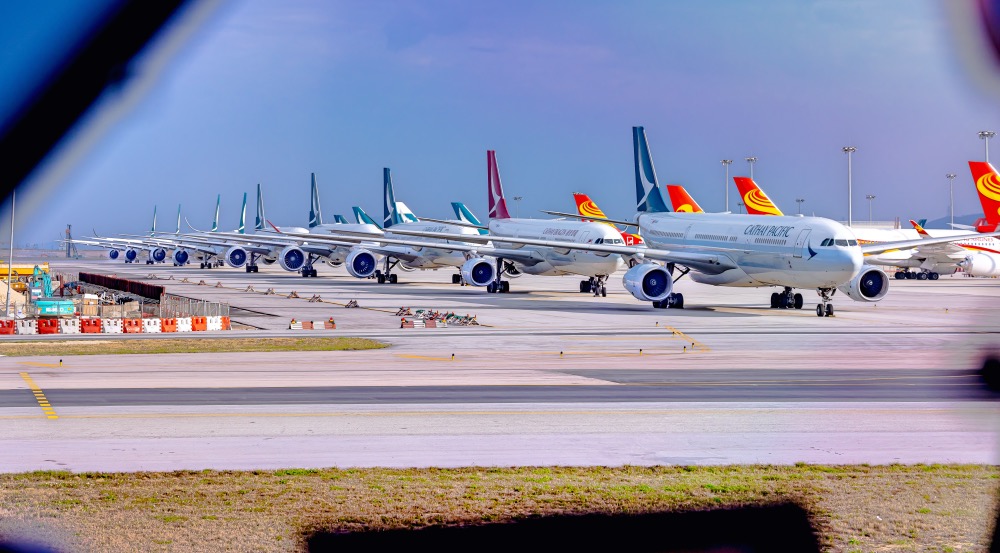Paris, June 21, 2023 – Today, at the International Paris Air Show (SIAE), Capgemini and Amazon Web Services (AWS) announced the launch of Lifecycle Optimization for Aerospace. This platform aims at accelerating the adoption of circular economy practices in the aviation industry by automating the inspection process, optimizing lifecycle analysis of aircraft parts, and guiding decisions to extend their lifespan. Several major players in the aviation sector, including Air France and Safran, participated in its development and will be amongst the first users of the platform.
Collection and analysis of in-service operations are secured within the Lifecycle Optimization for Aerospace platform to provide a comprehensive view and understanding of the usage of a part over time. Securing the collection of historical information will increase the potential re-use of each part of an aircraft and help the Aerospace ecosystem – owners, operators, and OEMs – to collaborate and improve worldwide utilization of existing products. The ambition in the next phase is to extend the capabilities of the platform to the recycling of these parts and secure the possibility to valorize the materials of the non-serviceable parts.
“Circular economy has been at the heart of our strategy for a long time, as we successfully repair and reuse many components from both in service or retired aircraft,” says Vincent Etchebehere, VP Sustainability and new mobilities at Air France. “The technologies tested in the platform are very promising and should allow us to increase even further the reuse ratio. As an airline and an MRO, we act as a catalyst in our supply chain by selecting the most responsible and sustainable products available.”
“Safran Landing Systems is strongly committed to reducing the environmental impact of its equipment. This includes fully utilizing the operational service life, which enables our customers to maximize the residual value of the equipment over its entire lifecycle. As an OEM that designs, manufactures and maintains landing systems, integrating our expertise with the Lifecycle Optimization for Aerospace platform should assist us in fulfilling this ambition,” stated Darren Waite, Customer Support and Services EVP at Safran Landing Systems.
“Being able to consider the aerospace industry’s entire value chain, including maintenance, and accurately monitoring the condition of an aircraft at any time, is a key lever for its overall transformation, as well as a field of real innovation,” said Cyril Garcia, Capgemini’s Head of Global Sustainability Services and Corporate Responsibility, Group Executive Board member. “Improving the utilization of existing products and recycling equipment has a part to play in the industry’s journey towards its sustainable future. Lifecycle Optimization for Aerospace allows us to take concrete action to support the collaboration of various actors around one common objective: to extend the use of serviceable parts or find the appropriate value chain to secure recycling while decarbonizing certain elements in the short term.”
The Lifecycle Optimization for Aerospace platform has been developed by Capgemini and built on AWS’s Cloud, another result of the strategic partnership between Capgemini and AWS. Artificial Intelligence and Machine Learning (natural language processing) services have been specifically developed and trained on data models, based on the ASD standards. The platform consolidates historical operation data and reconstructs a complete traceability of all the constituent parts of an aircraft.
“At least 800 aircraft are dismantled or stored every year. Lifecycle Optimization for Aerospace digitizes maintenance and optimizes aircraft lifespan. We are proud that AWS’s Cloud technologies enable a more sustainable future for the aviation industry,” says Tanuja Randery, Managing Director of EMEA at Amazon Web Services.
The database represents a valuable digital asset on which Capgemini builds services to optimize maintenance approaches and use of existing parts, with the help of companies interested in the project. The platform has already demonstrated its ability to optimize the inspection phases and ongoing development of complementary services, with the ambition to provide a decision-making tool for users in the various stages of the sustainability value chain.
Also see: Airbus and Renault Group to Advance Research on Electrification

